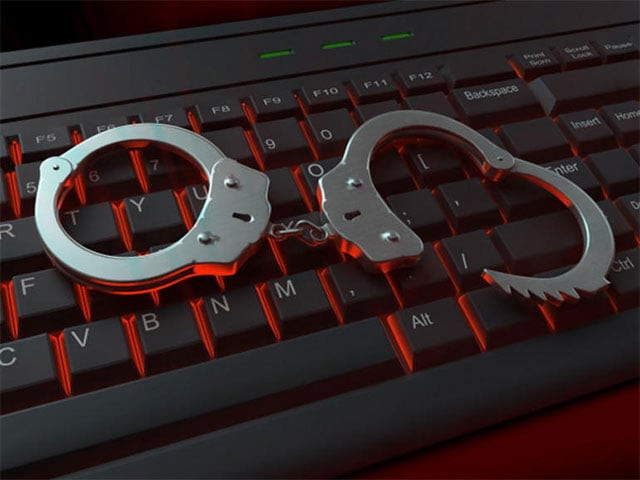Cybercrime act: Activists fear infringement of rights after NA passes bill
Say certain clauses could give unbridled power to PTA, investigation agencies

Activists say certain clauses could give unbridled power to PTA, investigation agencies. PHOTO: ZDNET
On Thursday, the National Assembly adopted the bill following the Senate’s unanimous adoption of the bill with over 50 amendments added by the members of the opposition.
Cyber terrorists to be jailed for 14 years
Speaking to The Express Tribune, co-founder and director at Bolo Bhi Farieha Aziz commented that the contentious clauses still remain and very few amendments have been made to curtail the misuse of the bill at the hands of Pakistan Telecom Authority (PTA) and investigation agencies, which have been “given unbridled powers” under the legislation.
“It’s a shame that a bill that drew so much criticism has been bulldozed through parliament,” Aziz said.
Lawyer Yasser Latif Hamdani said that his biggest concern is Section 34, which empowers the PTA to block websites.
“How is PTA going to decide what is moral and what is immoral?” he said.
Hamdani maintained that many of the provisions of the law were badly needed. “There were some over-broad definitions but the 50 amendments passed by the Senate which were included in the final version have considerably smoothed the jagged edges of the original bill.”
Pemra slaps 45-day ban on Dr Shahid Masood show
However, everything will depend on what kinds of judges oversee these cases. “The real test would be having judges and magistrates trained appropriately not just in cyber law, ICT and modern technologies, but also things like religious, sectarian, ethnic and racial tolerance as well as fundamental rights of citizenry including digital rights. If we establish good jurisprudence under it to ensure that the law is not misused for political and other reasons, perhaps this law can work,” he added.
Meanwhile, Media Matters for Democracy Director Progammes Sadaf Khan said, “For me, the implications on rights of freedom of expression, right to information and privacy remain the key concern.”

She underscored that the most contentious clause is Section 34 that gives PTA unbridled power to manage content online. “This clause can be used to legitimately censor and block access to politically dissenting voices and alternate narratives. Additionally, sections dealing with access to data and information do not have a public interest defence which might implicate whistle blowers and journalists. Section 10 dealing with cyber terrorism includes vague and overly broad qualifiers like 'creating insecurity in the government' which can implicate people exposing misdeeds within government institutions in terrorism charges.”
Expressing similar concerns, Digital Rights Foundation's Executive Director, Nighat Dad, said "The cybercrime bill is a disaster that is being allowed to envelop the country. Our lawmakers have gone ahead with deeply problematic provisions despite being told time and again what the consequences may be."
The bill drew international criticism with Drew Mitnick, policy counsel at Access Now, deeming the bill to be an ‘encroachment upon digital rights’.
“It is unfortunate that yet another bill intended to make the internet more secure instead globally undermines digital security and privacy,” he said.
Published in The Express Tribune, August 12th, 2016.



















COMMENTS
Comments are moderated and generally will be posted if they are on-topic and not abusive.
For more information, please see our Comments FAQ